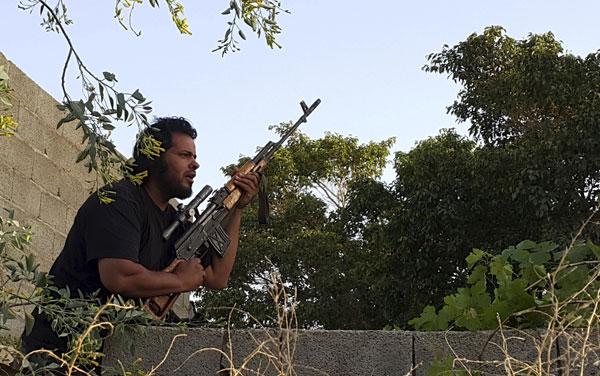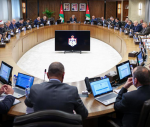You are here
Lack of quorum scuppers Libya confidence vote
By AFP - Feb 23,2016 - Last updated at Feb 23,2016
BENGHAZI — Libya's internationally recognised parliament was unable to hold a vote of confidence in the UN-backed unity government on Tuesday because it lacked a quorum, amid concerns over increasing extremist expansion.
"The required quorum [89 members of parliament] was not reached, so the president of the chamber adjourned the session", MP Mohamed Al Abbani told AFP.
Another parliamentarian, Ali Al Qaidi, confirmed that "the necessary quorum was not reached, and the session for the vote was adjourned until next week".
Qaidi said there were differences between MPs on the proposed new government's programme.
Another member, Khalifa Al Daghari, spoke of disagreements over the order of the day, with some MPs also wanting to vote on the political agreement reached in December in Morocco on the 2011 constitution before holding the vote of confidence.
Oil-rich Libya has had rival administrations since the summer of 2014 when the recognised government fled Tripoli after a militia alliance including militants overran the capital.
That alliance has established its own administration and parliament called the General National Congress, while the internationally recognised legislature is based in the eastern city of Tobruk.
The recognised parliament had wrapped up debate on Monday on the line-up and policies of the new government.
The United Nations has been pushing both sides to back a unity government.
A presidential council, born of an agreement in December under UN auspices between representatives of the rival parliaments, last week put forward a unity government of 18 members.
A previous Cabinet line-up of 32 ministers proposed by premier-designate Fayez Al Sarraj was rejected by the Tobruk parliament as being too large.
The United Nations Libya envoy took to Twitter early on Tuesday to push for the vote of confidence to be held.
He wrote that House of Representatives endorsement of the unity government "in its entirety is crucial. Fate of #Libya is at stake. National interest should override any other."
In addition to having rival administrations born of the chaos following the 2011 revolution that ousted Muammar Qadhafi, oil-rich Libya also has a growing problem caused by the Daesh group.
Western governments concerned over the militant Daesh establishing a bridgehead on the coast just 300 kilometres from Europe have said they are ready to help restore security to Libya as long as it has a unity government.
On Friday, US warplanes flying from a Royal Air Force base in Britain attacked a Daesh training camp in the western city of Sabratha, killing more than 40 people including two Serbian diplomats being held hostage.
The Pentagon said the raid probably also killed top militant operative Noureddine Chouchane whom officials say helped plot attacks in Tunisia last year that killed 59 foreign tourists.
Since the revolution in Libya five years ago, it has also expanded as a base for people-smugglers dealing in live cargo paying for the privilege of a perilous sea journey to Europe which they may not even survive.
Related Articles
BENGHAZI, Libya — Libya's internationally recognised parliament is expected to hold a vote of confidence Tuesday on a UN-backed national uni
BENGHAZI, Libya — International attempts to end the chaos in Libya took a step forward on Monday as a new national unity government wa
TRIPOLI — Western ambassadors on Friday condemned "unacceptable threats" that they said were blocking a vote of confidence by lawmakers in a

















